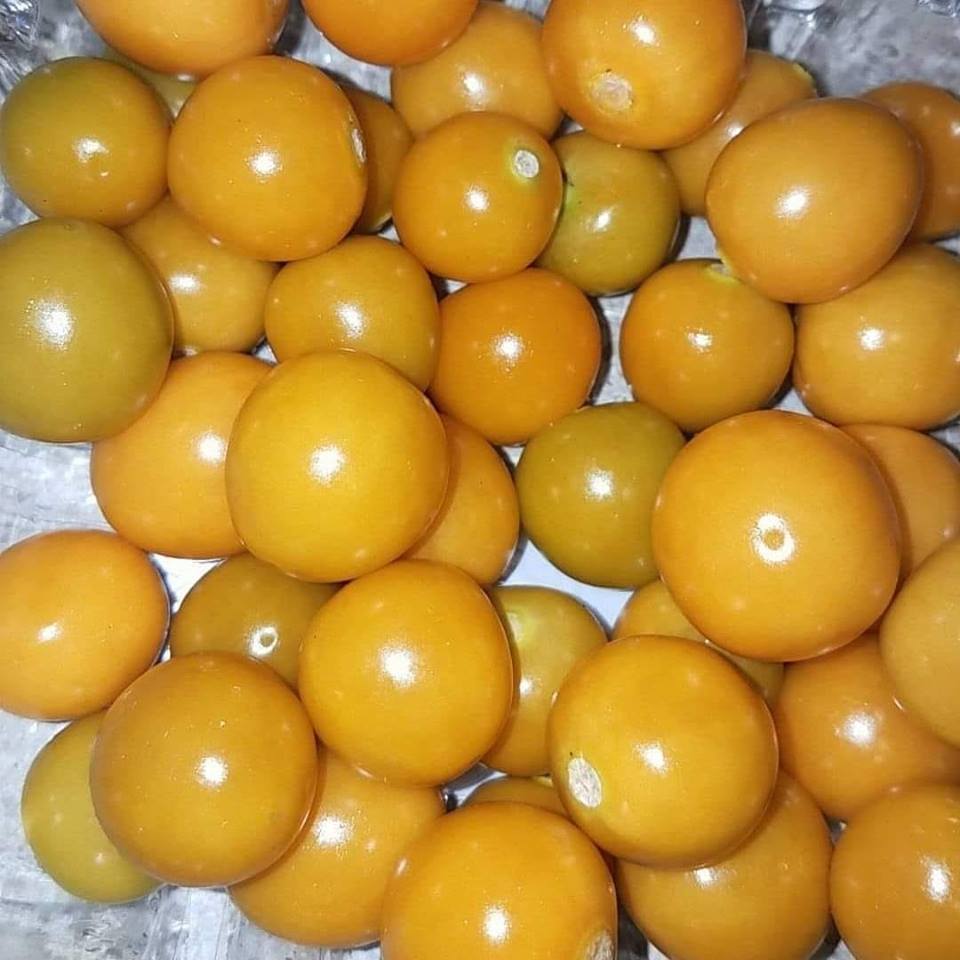 Cape gooseberry fruits. Photo courtesy.
Cape gooseberry fruits. Photo courtesy.
Smallholder farmers in Kenya can grow and earn up to Sh750,000 an acre from Cape gooseberry, a traditional vastly seen as wild and self-propagating-commonly fruit found in farms after harvesting maize and which was left as food for the birds and hunters in forests.
However, the fruit’s nutritional value has resulted to its rise in demand especially among the current health conscious consumers.
According to researchers, Cape gooseberries are an excellent source of vitamins A, B, and C and rich in protein and phosphorus making it anti-inflammatory, and which could help in the management of cancer, leukemia, diabetes and hepatitis among other lifestyle diseases.
In addition, the leaves of the gooseberry are utilized as medicinal teas. More value added products such as gooseberry crumb cake, gooseberry cake, juice, jam and wine are other sources of income for the farmer.
RELATED ARTICLE: The Cape Gooseberry is a \'wild\' fruit that could possibly be used to treat cancer
Cape gooseberry is known differently in the Kenyan local dialects; the Nandi people call it Mboniik, the Luo know it as Nyamtonglo, Kikusyus call it Nathi, the Kisii call it Chinsobosobo, the Kamba Ngondu while the Kipsigis, Chelolo.
The Gooseberry takes the form of a small orange berry, when ripe, which varies in taste from sour to sweet, based on the soils they grow in.
Farmers in Europe and South Africa have recently cultivated it commercially after it gained popularity as an interesting component for salads and a tasty garnish for cocktails. The berries are also delicious when stewed with other fruit, like apples and they make for an interesting mix with meat and seafood.
However, in Kenya the farming of the fruit is yet to pick up to make it the next big thing after it was selected as one of the 100 crops for commercialisation in the Big 4 Agenda.
RELATED ARTICLE: KALRO gives Busia farmers 55,000 free guava, gooseberry and jack fruit seedlings
Other than that, its great health benefits might provoke farmers to consider it a great addition to their farms.
Cultivating the fruit is easy as all a farmer needs are seeds, which take 12-14 weeks from planting to maturity and it can be grown organically with livestock manures.
The average yield observed in Kenya is 8 to 10 tonnes per hectare but under optimal management, this crop can yield up to 13 tonnes per hectare.
A single plant can yield average 200 fruits which is about five grams each translating to 1000g or a kilo fruits per season.
RELATED ARTICLE: Rare fruit fetches KSh2,300 per Kg in Kenya
An acre can accommodate 2500plants which can yield 2500kg of fruits which if sold at Sh300 per kilo earn a gross income of Sh750,000.
A farmer can also earn from selling the fruits directly to consumers in open air markets where a handful goes at Sh25 each and a farmer can sell at least 80 such hand full a day raking in Sh2,000 just on a single day.
Seeds can be collected from uncultivated land in most areas after the rains or call 0720466433 for seeds.
















Comments powered by CComment